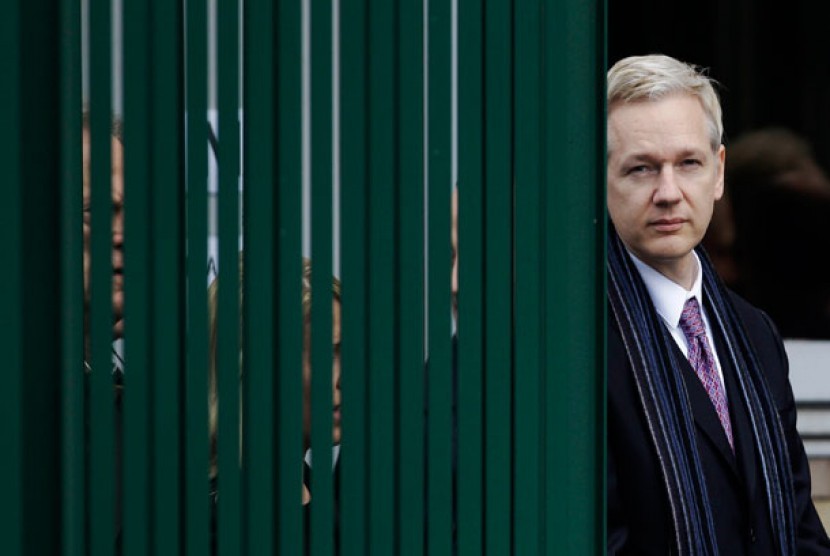REPUBLIKA.CO.ID, SYDNEY -- WikiLeaks founder Julian Assange will leave the Ecuadorian embassy in London, where he took refuge in June 2012 to avoid extradition to Sweden, and accept arrest on Friday if a UN panel investigating his case rules against him, he said in a statement.
Assange, 44, is wanted in Sweden for questioning over allegations of rape in 2010 which the Australian denies.
"Should the U.N. announce tomorrow that I have lost my case against the United Kingdom and Sweden, I shall exit the embassy at noon on Friday to accept arrest by British police as there is no meaningful prospect of further appeal," Assange said in the statement posted on the Wikileaks Twitter account.
"However, should I prevail and the state parties be found to have acted unlawfully, I expect the immediate return of my passport and the termination of further attempts to arrest me."
Assange fears Sweden will extradite him to the United States, where he could be put on trial over WikiLeaks' publication of classified military and diplomatic documents, one of the largest information leaks in U.S. history.
The U.N. Working Group on Arbitrary Detention is currently considering a request for relief by Assange, who argued in a submission that his time in the embassy constituted arbitrary detention.
Assange argued that he had been deprived of his fundamental liberties, including lack of access to sunlight or fresh air, adequate medical facilities, as well as legal and procedural insecurity.
Assange made international headlines in early 2010 when WikiLeaks published classified U.S. military video showing a 2007 attack by Apache helicopters that killed a dozen people in Baghdad, including two Reuters news staff.
Later that year, the group released over 90,000 secret documents detailing the U.S.-led military campaign in Afghanistan, followed by almost 400,000 internal U.S. military reports detailing operations in Iraq.
Those disclosures were followed by the release of more than 250,000 classified cables from U.S. embassies. It would go on to add almost three million more diplomatic cables dating back to 1973.
Since his confinement, WikiLeaks has continued to publish documents on topics such as the Trans-Pacific Partnership, one of the world's biggest multinational trade deals, which was signed by 12 member nations on Thursday in New Zealand.
A spokesman for Assange could not immediately be reached for comment.
Lennart Jansson, the Charge d'Affaires at the Swedish embassy in Canberra, declined to comment on the announcement.


